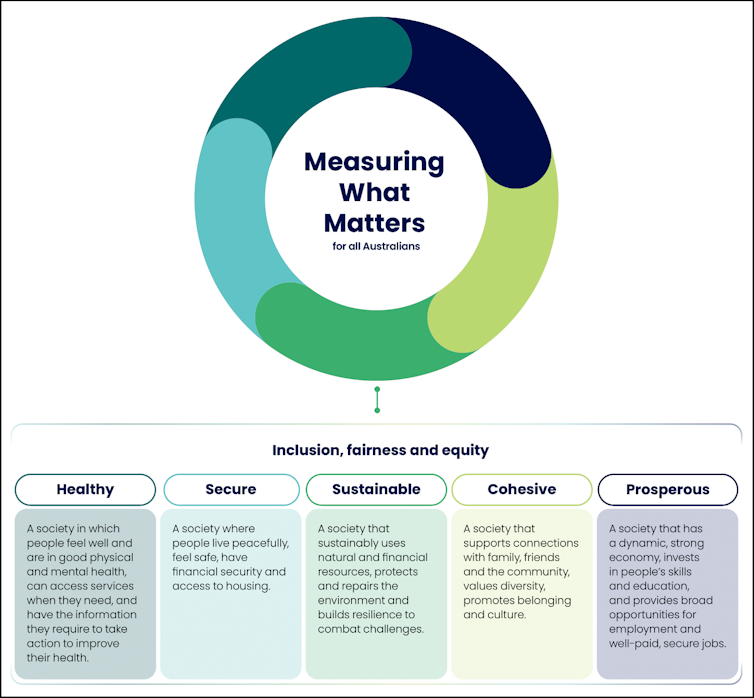Today's Measuring What Matters statement is just a first step – now we have to turn goals into action
- Written by Warwick Smith, Research economist, The University of Melbourne

Today’s release of the Commonwealth Treasury’s Measuring What Matters[1] statement is an important step towards better government decision-making and a shared vision for the Australia we want, but it’s only the first step.
Treasurer Jim Chalmers has long talked about broadening[2] our measures of success beyond the traditional ones of Gross Domestic Product (GDP), inflation and unemployment.
The wellbeing framework[3] announced today is an attempt to bring those ideas into being. The need for different economic thinking is demonstrated in many ways, including the current housing crisis, worsening climate change, the loss of biodiversity and increases in financial stress and mental illness.
The new framework consists of a dashboard of 50 indicators, grouped under five themes, which seek to broaden our collective ambition beyond things such as GDP.














